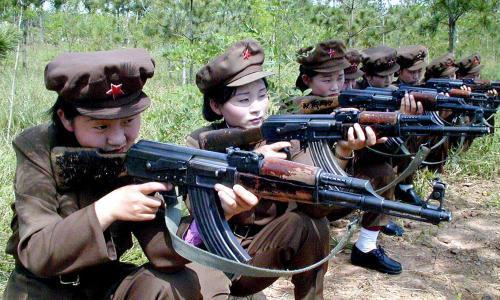The dilemma is deepening for Seoul and Washington as North Korea seeks to improve relations with Japan and Russia, shrinking the allies’ policy options already eroded by the communist regime’s continuing nuclear development.
A series of unilateral moves by Tokyo to reengage Pyongyang has sparked concern that it could undermine international efforts to deter its nuclear ambitions and military provocations.
Furthering the concern is a recent agreement between the two old foes to reopen a probe into abducted Japanese nationals in exchange for the lifting of minor, independent sanctions against the North.
A series of unilateral moves by Tokyo to reengage Pyongyang has sparked concern that it could undermine international efforts to deter its nuclear ambitions and military provocations.
Furthering the concern is a recent agreement between the two old foes to reopen a probe into abducted Japanese nationals in exchange for the lifting of minor, independent sanctions against the North.

The announcement, however, caught South Korea and the U.S. by surprise, though they received notice shortly before it was made public.
The hard-won deal came as the three countries and even China are ratcheting up the pressure to dissuade the North from conducting a fourth nuclear test and bring it back to the negotiating table.
Japan has long stressed the significance of trilateral security cooperation with Seoul and Washington, which was the rationale behind its push for a much-trumpeted three-way summit in The Hague in March.
In contrast to a perceived turnaround in Pyongyang-Tokyo ties, the Park Geun-hye government’s ambitious inter-Korean initiatives have made little headway.
The Barack Obama administration appears to be sticking to the “strategic patience” approach, which critics say only helps the erratic regime further sophisticate its nuclear capability thanks to inaction, even after another U.S. citizen was found last week to have been detained in the reclusive state.
The allies seem to be remaining cautious about the agreement, displaying their understanding from a “humanitarian point of view” while calling for transparency in Japan’s dealings with the North and sustained denuclearization cooperation.
Amid chilly relations with China, the Kim Jong-un regime is turning to Russia for economic support, which has taken flak for its annexation of the Crimean Peninsula and the ongoing Ukraine crisis.
Moscow has recently agreed to write off almost $10 billion of Pyongyang’s Soviet-era debt, which it said could be used to finance a gas pipeline and a railway to South Korea through the North.
For cash-strapped Pyongyang, improved ties with Tokyo and Moscow could pave the way for food handouts and other assistance essential for propping up its economy and calming public sentiment.
The regime appears to be aiming for a deal with Japan on the normalization of their bilateral relations, which will come with financial compensation for the island country’s 1910-45 colonial rule. Tokyo’s 1965 pact with Seoul provided seed money for the development of national infrastructure and core industries in the war-ravaged nation.
Though wary of a premature thaw in the North Korea-Japan relationship, Seoul officials painted a bleak outlook not only for the normalization of ties but also for the abduction investigation given the stark differences between the two sides.
“Both sides would strive to meet each other’s expectations so as to keep up the momentum but it would not be easy because clearly there are limits,” a senior Seoul official said on condition of anonymity.
“Just like every cloud has a silver lining, the deal on the other hand means that Japan carries the big task of preventing North Korea’s fourth nuclear test.”
Sheila Smith, a senior fellow for Japan studies at the Council on Foreign Relations in Washington, said though the deal may mark a diplomatic coup for Japanese Prime Minister Shinzo Abe, his options are limited in his diplomacy with Pyongyang.
“There is also the worry that North Korea’s ultimate ambition is to delink Japan from the extended deterrent that has long been at the core of the U.S.-Japan alliance,” she wrote recently on 38 North, a blog run by the U.S.-Korea Institute at Johns Hopkins University.
“(But) Abe will be constrained by the same factors that constrained his predecessors, and he is unlikely to deviate from Japan’s collaboration with Washington and Seoul. … This agreement on investigating the fate of the abductees will not be sufficient to compromise its longer term strategic concerns.”
By Shin Hyon-hee (heeshin@heraldcorp.com)



![[KH Explains] Hyundai Motor’s plan for new landmark keeps hitting bumps](http://res.heraldm.com/phpwas/restmb_idxmake.php?idx=644&simg=/content/image/2024/05/13/20240513050626_0.jpg&u=20240513192803)






![[Grace Kao] American racism against Stray Kids](http://res.heraldm.com/phpwas/restmb_idxmake.php?idx=644&simg=/content/image/2024/05/13/20240513050827_0.jpg&u=)
![[Graphic News] Over 80% of people filing bankruptcy in Seoul in their 50s and older](http://res.heraldm.com/phpwas/restmb_idxmake.php?idx=644&simg=/content/image/2024/05/12/20240512050205_0.gif&u=)






